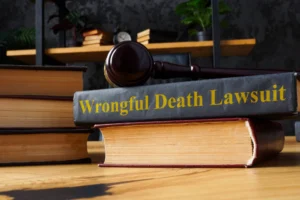If you’ve been charged with a federal drug crime and you’ve been told the case against you involves a confidential informant (CI), your next steps may dictate the rest of your life. These types of cases are complicated by design. Prosecutors often rely heavily on informants to build their narrative and push for conviction, especially when they don’t have hard evidence.
At Guzman Law Firm, we’ve defended clients in high-stakes federal drug cases across Texas and beyond. We know how federal agents operate, what prosecutors will try to argue, and how to challenge the credibility of a confidential informant in court.
If you’re under investigation or have been charged with a federal drug crime, contact Guzman Law Firm now at (956) 516-7198 to protect your rights.
What is a confidential informant?
A confidential informant, or CI, is a person who gives law enforcement information about alleged criminal activity in exchange for leniency, payment, or other incentives. In federal drug cases, CIs are often embedded in investigations, sometimes making controlled buys, setting up wiretapped conversations, or providing inside knowledge about drug trafficking organizations.
How can you tell if a person is an informant? Unfortunately for defendants, these individuals are kept confidential to protect their identity, which means that as a defendant, you may not initially know who is accusing you or what their relationship is to the case. However, during discovery and trial preparation, a skilled federal defense attorney can obtain more details and potentially unmask the CI’s identity.
Federal prosecutors will argue that a CI is a crucial piece of the puzzle, but the reality is that informants often have personal motives; they may be…
- Working to get their own drug charges dismissed
- Trying to avoid prison time
- Being paid for their cooperation
These motivations can drastically affect their credibility and become major points of attack during a trial.
What are the rules for a confidential informant?
Believe it or not, there are rules and policies governing the conduct of confidential informants (CIs), especially in federal investigations, but enforcement of those rules can be inconsistent — and informants are often allowed a surprising amount of leeway, including engaging in criminal activity like drug use, under certain circumstances.
The U.S. Department of Justice (DOJ) and federal agencies like the DEA, FBI, and ATF follow internal guidelines that regulate how CIs are handled. These guidelines require that:
- CIs are evaluated and approved before being used, especially if they have a criminal history
- Law enforcement agents document and monitor their activity
- A CI’s involvement in “otherwise illegal activity” (OIA) must be authorized and limited in writing
Are confidential informants allowed to do drugs?
Technically, no. Confidential informants are not supposed to use or distribute drugs while cooperating with federal agents. However, in practice, exceptions are often made, particularly when:
- The CI has a history of drug use and full abstinence is deemed unrealistic
- The drug use is part of maintaining undercover credibility
- Agents turn a blind eye to certain behaviors to preserve the relationship or investigation
In some situations, CIs have even committed crimes (including selling or trafficking drugs) while cooperating and received leniency because their work was considered valuable; but this can be exactly what makes a confidential informant not credible. If the CI is using drugs during the investigation, their perception, memory, and reliability could be compromised — but you’ll need a very good attorney to argue it.
How CI testimony is treated in Federal court
In federal drug cases, prosecutors frequently use testimony from confidential informants to fill in gaps where physical evidence is weak. CIs might testify about:
- Drug purchases they claim to have made from the defendant
- Conversations or text messages related to drug deals
- The defendant’s role within a drug trafficking network
- The location of stashes, weapons, or money
However, federal courts recognize that informant testimony can be unreliable. Many CIs have criminal records, active cases, or financial incentives tied to their cooperation. These factors introduce major credibility concerns. A judge or jury will weigh this testimony carefully.
Federal judges often give jury instructions specifically advising jurors to be cautious with informant testimony. And if an informant lies under oath, it opens the door to perjury charges, mistrials, and dismissal of evidence.
The key to challenging CI testimony lies in exposing inconsistencies, motives, and credibility issues, which a federal defense attorney can do through cross-examination and pretrial discovery.
Continue reading: What are the federal drug trafficking sentencing guidelines?
How a Federal defense attorney can challenge testimony from a confidential informant
At Guzman Law Firm, we’ve handled many cases where a confidential informant was central to the government’s strategy. We know that simply being labeled an “informant” doesn’t make someone trustworthy or even truthful. Here’s how an attorney may work to discredit or limit the impact of a CI’s testimony:
- Motive exposure: We dig into the CI’s background (e.g., what criminal charges they’re facing, whether they’ve been paid, or if they’ve been promised reduced sentences). If a person has everything to gain by lying, we make that clear to the court.
- Discovery and suppression motions: We push for disclosure of the CI’s identity, history, and relationship with law enforcement. In some cases, we file motions to suppress the informant’s statements or evidence obtained through questionable tactics, such as if the CI was involved in illegal surveillance or entrapment.
- Cross-examination: During trial, cross-examining an informant can reveal contradictions, inconsistencies, and potential fabrications in their story. If the CI has a history of lying, drug use, or misconduct in previous cases, we make sure the jury hears about it.
- Alternative theories: We may present witnesses or evidence that go against the CI’s version of events. Video footage, alibi witnesses, or phone records can poke holes in their timeline or credibility.
By exposing these weaknesses, we work to shift the focus back to the prosecution’s burden of proof — not the word of a potentially compromised witness. Ultimately, the goal is to cast enough doubt on the informant’s reliability that their testimony can’t be trusted as the foundation of a conviction.
Don’t leave your freedom to chance. Get a strong defense from Guzman Law Firm.
Whether you’ve been accused based on the word of a confidential informant or pressured to become one, the stakes are too high to go it alone. Federal drug charges are built to be intimidating, and prosecutors will use every tool they can, including incentivized informants with questionable credibility.
At Guzman Law Firm, we know how to poke holes in the prosecution’s case, challenge weak or biased testimony, and protect our clients from being manipulated by law enforcement. If your case involves testimony from a confidential informant, reach out to us immediately. Your future may depend on what you do next, and we’re here to help you do it right.
Call Guzman Law Firm today at (956) 516-7198 to schedule a confidential consultation and build a defense that works.
More Helpful Articles by Guzman Law Firm:
- What Is Probable Cause in a Search for Drugs or Firearms?
- Who Is Liable in a Multi-Vehicle Accident in Texas?
- What Happens if You Refuse a Breathalyzer in San Antonio?
- What Are the Consequences of Missing a Court Date in Texas?
- How Texas Law Handles Uninsured Drivers in Car Accidents





